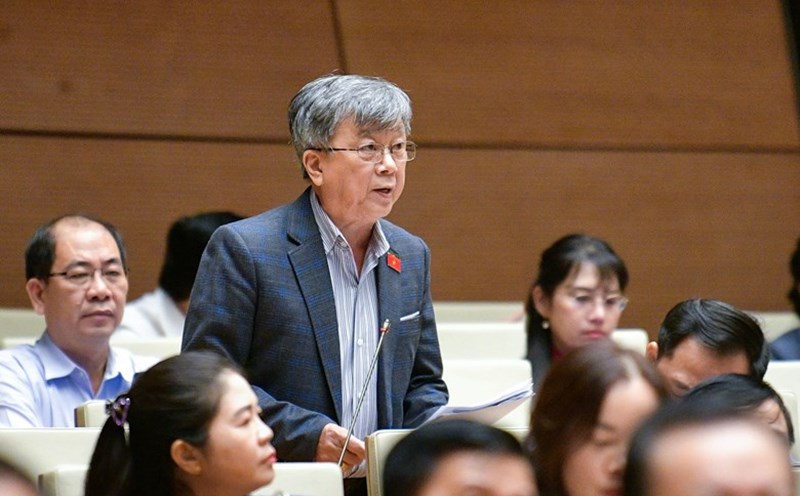On the afternoon of November 27, the National Assembly discussed in the hall the draft Law on Special Consumption Tax (amended).
Participating in the discussion, delegate Hoang Van Cuong (Hanoi delegation) said that cigarettes, alcohol and beer are products that are harmful to health. Therefore, it is necessary to increase special consumption tax on these products, but it is necessary to consider how to increase it to change behavior.
According to delegate Hoang Van Cuong, alcoholic beverages with high alcohol concentration must be taxed highly, while beverages with low alcohol concentration must be taxed less.
“The current tax rate for low-alcohol beverages being equivalent to that for high-alcohol beverages is unreasonable. Therefore, it is recommended to reconsider the plan to increase the special consumption tax on beer, such as increasing the highest rate for strong alcohol, lower for alcohol under 20 degrees, and even lower for beer,” said a delegate from the Hanoi delegation, and suggested considering increasing the special consumption tax on tobacco.
Agreeing with the adjustment to increase tobacco tax to implement the policy of the Party and State, delegate Do Thi Thu Hang (Dong Nai delegation) said that, with the goal of reducing the rate of smokers and protecting people's health, we are simultaneously applying tools, including tax.
This delegate said that starting in 1999, we applied special consumption tax at a rate of 45%, gradually increasing to 75% in 2019 and maintaining it until now. In particular, since 2016, the increase at each adjustment was only 5% and the time between increases was from 3 to 4 years.
This is an increase and roadmap that is appropriate to consumers' income. This also helps tobacco manufacturing enterprises have enough time to prepare, plan appropriate strategies and policies, stabilize production, gradually improve product quality and increase the efficiency of their contribution to the state budget.
From there, delegate Do Thi Thu Hang proposed that the application of absolute tax rates from this adjustment should not be sudden and each increase must have a time interval of at least 3 years (as was done in the previous period).
The reason, this delegate gave, is that with a sudden increase in taxes and a short roadmap, domestic tobacco businesses will lose competitiveness and will not be able to respond in time to changes in strategy and production.
State budget revenue will not be sustainable and is at risk of shrinking because these enterprises will lose their fighting capacity when simultaneously under pressure from taxes, illegal tobacco and annual increases in raw material prices.
On the other hand, when taxes increase, leading to a serious decline in consumption output and production and business results, it will reduce the efficiency of capital investment and waste state assets in tobacco enterprises.
Participating in the discussion, delegate Nguyen Thi Kim Anh (Bac Ninh delegation) said that it is necessary to base on the actual situation of the manufacturing industry, supply chain, raw materials and consumer demand.
If the tax increase is too high and sudden, it can have the opposite effect, such as decreased production, counterfeit and poor quality goods, increased smuggling, unrestricted consumption, and tax loss for the state budget.
“The sudden tax increase as above risks leading to increased smuggling and tax evasion; affecting border security; and reducing budget revenue,” said a delegate from the Bac Ninh delegation.











